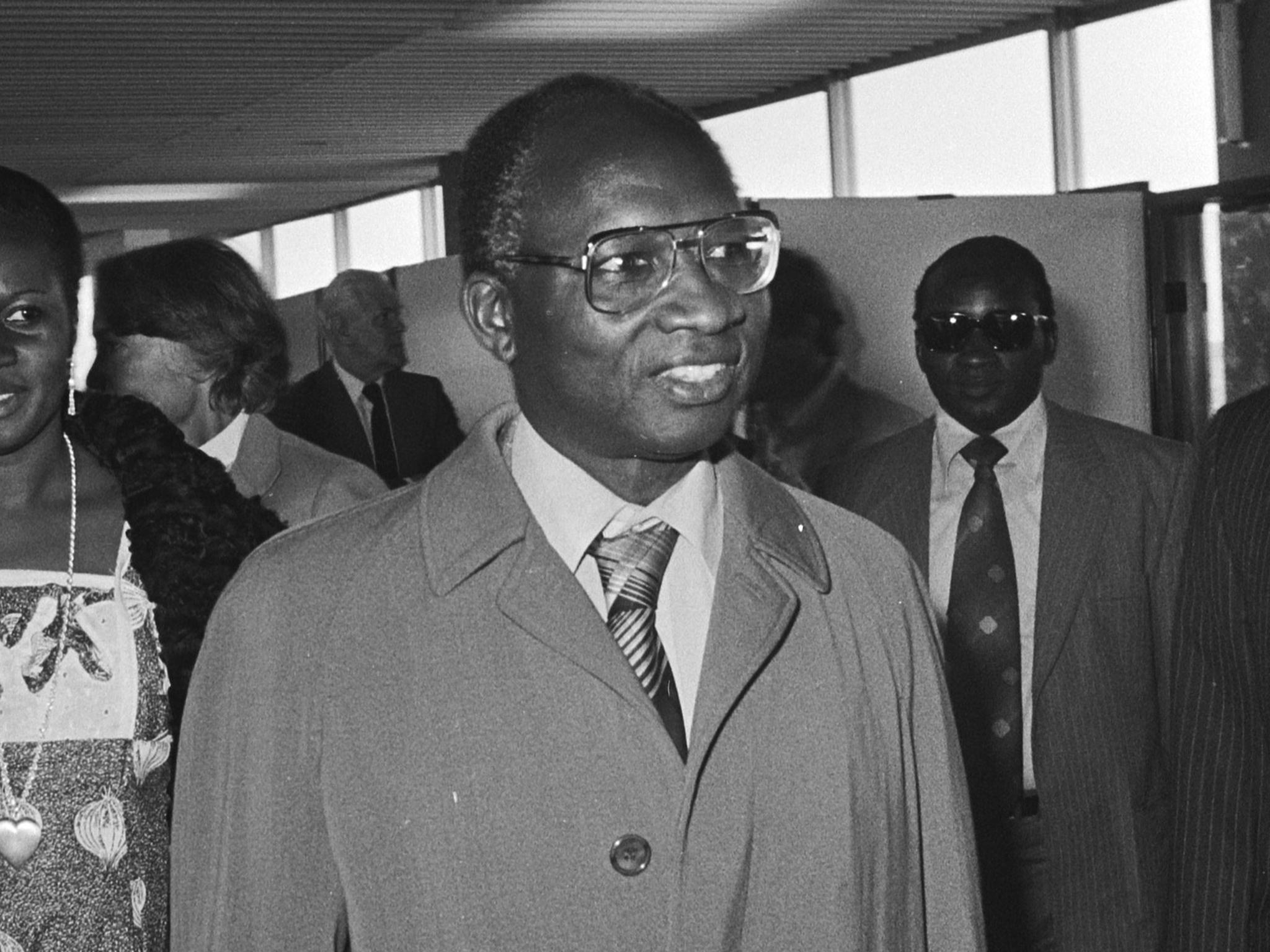Sir Dawda Jawara: The Gambia’s first president who led the country to independence
Regarded as a founding father of the west African nation, he maintained a democratic mandate for nearly 30 years

Your support helps us to tell the story
From reproductive rights to climate change to Big Tech, The Independent is on the ground when the story is developing. Whether it's investigating the financials of Elon Musk's pro-Trump PAC or producing our latest documentary, 'The A Word', which shines a light on the American women fighting for reproductive rights, we know how important it is to parse out the facts from the messaging.
At such a critical moment in US history, we need reporters on the ground. Your donation allows us to keep sending journalists to speak to both sides of the story.
The Independent is trusted by Americans across the entire political spectrum. And unlike many other quality news outlets, we choose not to lock Americans out of our reporting and analysis with paywalls. We believe quality journalism should be available to everyone, paid for by those who can afford it.
Your support makes all the difference.Sir Dawda Jawara, who has died aged 95, was the Gambian politician who led the former British colony to independence in 1965 in what was ostensibly a multi-party liberal democracy. Re-elected five times, he resisted pressures during his rule for postcolonial Gambia to combine with neighbouring Senegal.
Jawara was born in 1924 to Almammi Jawara and Mamma Fatty in the village of Barajally in central Gambia, 150 miles from the capital Bathurst (now called Banjul). At this time, the Gambia was under the rule of the British who had established a military presence in Bathurst in 1816.
Jawara moved to the Gold Coast (now Ghana, then also under British colonial rule) in 1947 to study sciences in Accra, prompted by a lack of educational prospects in colonial Gambia.
The Gold Coast, along with other possessions of the British empire, was becoming restless for self-government (Ghana would be the first African nation to gain independence). However, Jawara did not display a marked interest in political activity during his time there, despite meeting Kwame Nkrumah, Ghana’s influential founding father and an advocate of pan-Africanism.
Jawara later travelled to the UK to train as a veterinary surgeon, first at the University of Glasgow, followed by the University of Liverpool. When he returned home after completing his studies in 1953, he worked as a veterinary officer.
The Gambia was the last country in west Africa to achieve independence, which occurred on 18 February 1965. Like many other former British colonies, initially it was established as a constitutional monarchy within the Commonwealth under the rule of Queen Elizabeth II, represented by the governor-general.
In 1959 Jawara joined the People’s Progressive Party and soon became its leader. The party won a narrow majority in the 1962 elections: when self-government came in October 1963, Jawara became prime minister. He was knighted by the Queen in 1966, and was at the helm when the Gambia gained independence.
Following a referendum, the Gambia became a republic within the Commonwealth in 1970 and Jawara became its first president, an executive post combining the offices of head of state and head of government. He was re-elected five times.
One of Jawara’s most significant achievements during his rule was to prevent the Gambia becoming a part of Senegal, which surrounds the country apart from its Atlantic coastline. In 1981, a weakening economy led the country’s leftist party to attempt a coup against Jawara’s government, accusing politicians of being “corrupt, tribalistic and despotic”. Jawara requested military aid from Senegal. Within a week, 2,700 Senegalese troops had been deployed to the Gambia and hundreds were killed in the ensuing violence. In the aftermath of the unsuccessful coup, Senegal and the Gambia signed the Senegambia Confederation, a treaty aimed to combine their armies and unite their currencies. However, the Gambia permanently withdrew from the confederation in 1989.
Jawara led the Gambia until July 1994, his rule was brought to an end by a bloodless military coup led by Lt Yahya Jammeh, who was 29 at the time. He ruled for the next 22 years, preferring the title of “His Excellency Sheikh Professor Doctor President”, with a questionable reputation for forcing Gambians to take his bogus HIV cure and jailing people who said anything he didn’t like.
Destitute after Jammeh seized his property, Jawara went to Britain with his family until 2002, when Jammeh granted him amnesty and returned his assets to him.
Jawara was the last living Gambian to have been given a knighthood under the monarchy of the Gambia. He is survived by two wives and several children.
Sir Dawda Kairaba Jawara, former president of the Gambia, born 16 May 1924, died 27 August 2019
Join our commenting forum
Join thought-provoking conversations, follow other Independent readers and see their replies
Comments